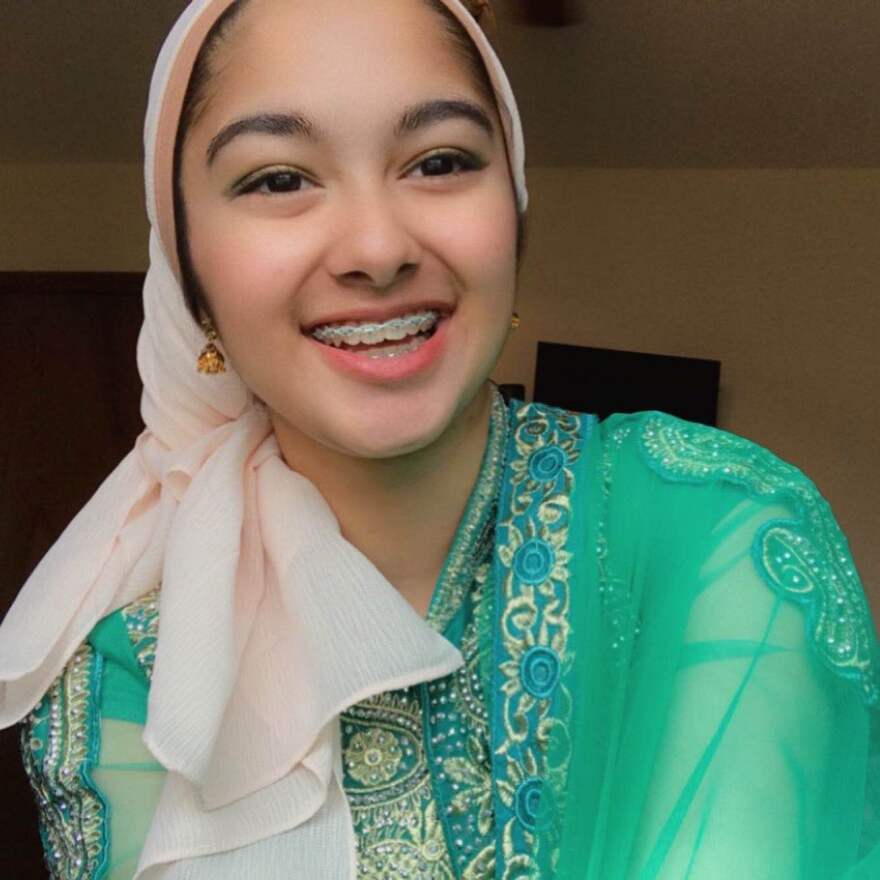Instead of marking the beginning of Ramadan at the mosque as he normally would, Zeeshan Khan spent last Thursday evening at home.
“Right now it’s just gonna be pray with the family, break fast with the family, and start the day with the family, just like everyone else in town,” said Khan, a Wichita State University grad student.
Wichita mosques — like most other places — have been closed for weeks because of the coronavirus outbreak. The pandemic is changing how Muslims here, and around the world, are observing the holy month of Ramadan — a time of fasting, reflection and community.
“Absolutely sad times,” said Hussam Madi, spokesman for the Islamic Society of Wichita.
Observing Ramadan “happens in a collective way,” he said. As many as 500 to 700 people could be at the society’s mosque in northeast Wichita on any given night for iftar, the breaking of the fast, and to pray.
“And that’s not taking place right now,” Madi said. “And there are a lot of sad Muslims at this moment.”
While some mosques in other cities are holding virtual iftars, Madi says the Islamic Society of Wichita doesn’t plan to do the same. But he is encouraging people to continue the traditions on “a smaller scale” at home.
“We’ve all been busy in our lives that we don’t break fast together,” he said, “but now ... we’re kind of being forced into that, so you make the best time of it.”
Khan said his time with his parents and siblings is a bright side to the situation; between his studies and his job at the National Institute for Aviation Research, he said he wasn’t able to spend much time with them before the pandemic forced them all together.
Still, he said he’ll miss connecting with the greater Muslim community, helping serve food and watching kids play basketball after the nightly prayer, just like he did growing up.
"The community has definitely been a big part of the Ramadan experience," he said. "Being at work and school sometimes ... you're the only one who'd be fasting in that environment. So when you come to prayer at night and you come spend that time with your brothers and sisters and do that, it's a really good feeling.
“Just seeing my fellow ... Muslim brothers and just talking about how their day went fasting, and going through that experience with one another, I’m definitely going to miss [it],” Khan said.

His sister, Zainab, said praying communally at the mosque brings her a sense of peace.
“This year, that’ll be different … The environment’s going to be different,” she said. “The things we’ll do will be the same, but I’ll also have more time to focus on bringing myself closer to God.”
While he and his sister are being patient, Zeeshan Khan said he’s still hopeful he and others will be able to go back to the mosque before the month is over; the eid celebration to mark the end of Ramadan can draw thousands.
Though Gov. Laura Kelly is unveiling her plan for reopening the state and easing limits on large gatherings, the society doesn’t have plans yet for letting the public back in, Madi said.
“We’re probably going to be shut down for the whole month of Ramadan,” he said. “When things do start to ease up, do we ... divide up the services where then it’s about 200 people at one time or whatever you know, at that time the health officials say and city officials say?
“We won't be able to go all at one time, full-fledge again.”
Help during the pandemic
Meanwhile, the mosque is continuing to collect and distribute boxes of food to individuals in need. Madi said while the Islamic Society of Wichita typically serves about 50 families throughout the year, he expects to provide food to about 200 families now because of the COVID-19 pandemic.
"The need of people have increased, people that are putting in their applications and their requests for help," he said.
Anyone in need of assistance can request a box by calling 316-682-5479.




